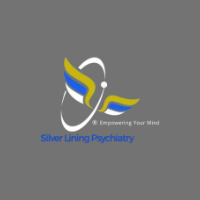Tired All The Time? It Could Be Depression—and It’s Treatable

Everyone feels tired now and then, especially after a long day or a restless night. But if you’re constantly low on energy even after getting enough sleep, it could be a sign of something deeper. Fatigue is one of the most common symptoms of depression, yet it’s often overlooked.
Many adults brush off this type of tiredness, thinking it’s just due to stress or a busy routine. While those can play a role, lasting exhaustion that doesn’t improve may point to something more serious. If this sounds familiar, it may be time to look into how depression could be affecting your life—and how treatment can help.
More Than Just Feeling Tired
Tiredness linked to depression is different from the kind that follows a busy day or a poor night’s sleep. It doesn’t usually go away with rest or extra coffee. This kind of fatigue affects not just your body, but also your ability to focus, stay motivated, or enjoy things you once liked.
Here are some signs the tiredness you’re feeling may be connected to depression:
You wake up feeling just as tired as when you went to bed
You struggle to concentrate or complete basic tasks
You avoid social activities or hobbies because of low energy
You feel mentally drained for no clear reason
Even simple decisions feel overwhelming
If you’ve been feeling this way for more than a couple of weeks, it’s worth talking to a mental health professional. The earlier you explore what’s going on, the sooner you can find a path forward.
Why Depression Causes Fatigue
Depression affects both the mind and body. It can change your brain chemistry, disrupt sleep patterns, and reduce your interest in daily routines. This creates a cycle: you feel tired, which makes you less active, which then makes you feel worse.
Some of the ways depression leads to fatigue include:
Disrupted sleep: Depression can cause trouble falling or staying asleep
Low motivation: Even getting out of bed can feel like a challenge
Slowed thinking: Mental fatigue makes everyday tasks feel harder
Physical symptoms: Aches, pains, or digestive issues can wear you down
It’s important to know that this kind of tiredness isn’t something you can “snap out of.” It’s not laziness or weakness. It’s a real medical issue—and it’s treatable.
Getting Help: What to Expect
If you’re in Orlando and constantly feeling worn out, reaching out for help is a smart first step. Many people don’t realize that tiredness, focus problems, and irritability can all be signs of depression. A proper evaluation from a psychiatrist can help you understand what’s really going on.
An experienced provider will:
Ask about your symptoms and how long they’ve been happening
Review your sleep, energy, appetite, and mood patterns
Check for any related conditions like anxiety or ADHD
Work with you to create a treatment plan that fits your life
Personalized depression treatment in Orlando may include medication, supportive follow-up care, and recommendations for improving daily habits. Treatment is not about making drastic changes overnight—it’s about small, steady steps that help you feel more like yourself again.
Why It’s Okay to Ask for Help
Many adults try to push through depression, thinking they should just “deal with it.” But untreated depression can affect your health, relationships, and overall quality of life.
Getting help doesn’t mean something is wrong with you. It means you’re taking care of yourself. Just like you’d see a doctor for ongoing pain or high blood pressure, it makes sense to talk to someone when your energy and mood aren’t where they should be.
Treatment is not one-size-fits-all. A mental health doctor will work with you to find the approach that makes sense for your specific symptoms, goals, and comfort level.
Small Improvements That Matter
When depression is treated, one of the first things people often notice is that their energy begins to return. They start feeling more present, more motivated, and more capable of facing each day.
Treatment may help with:
Getting restful sleep
Improving focus and memory
Feeling more interested in daily activities
Reducing the physical symptoms of depression
Feeling more emotionally stable and connected
You don’t have to wait for things to get worse. If something feels off, that’s reason enough to reach out.
Finding the Support You Need
Feeling tired all the time isn’t just about being overworked or under-rested. Sometimes it’s your mind and body asking for help. If your energy has been low for a while and daily life feels harder than it should, depression could be the reason.
In Orlando, mental health care is available for adults who want to understand their symptoms and take steps toward feeling better. One local practice offering this kind of support is Silver Lining Psychiatry. They focus on adult and geriatric care, providing thorough psychiatric evaluations, personalized treatment plans, and ongoing medication management in a quiet, respectful setting.
To speak with their team or schedule an appointment, call (407) 965-2410.
